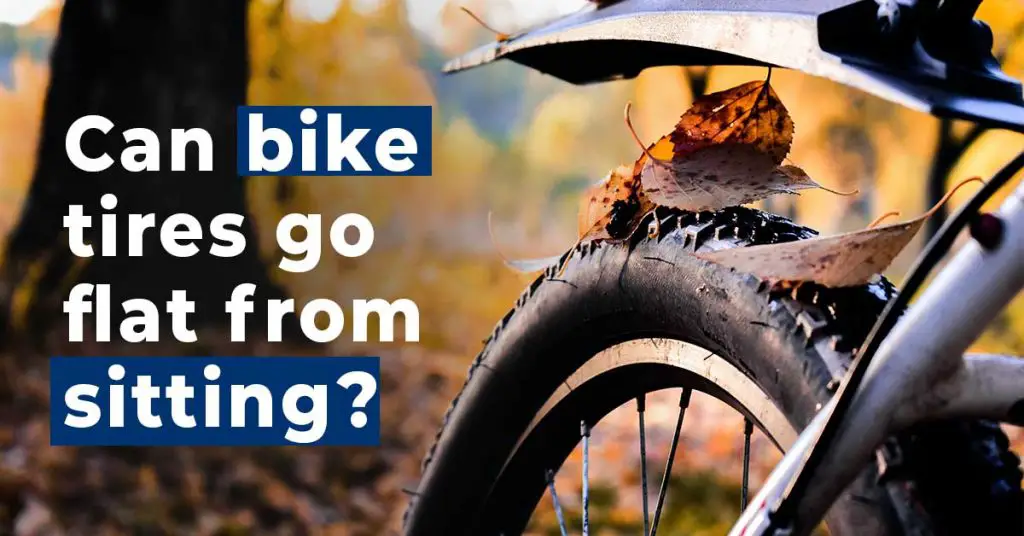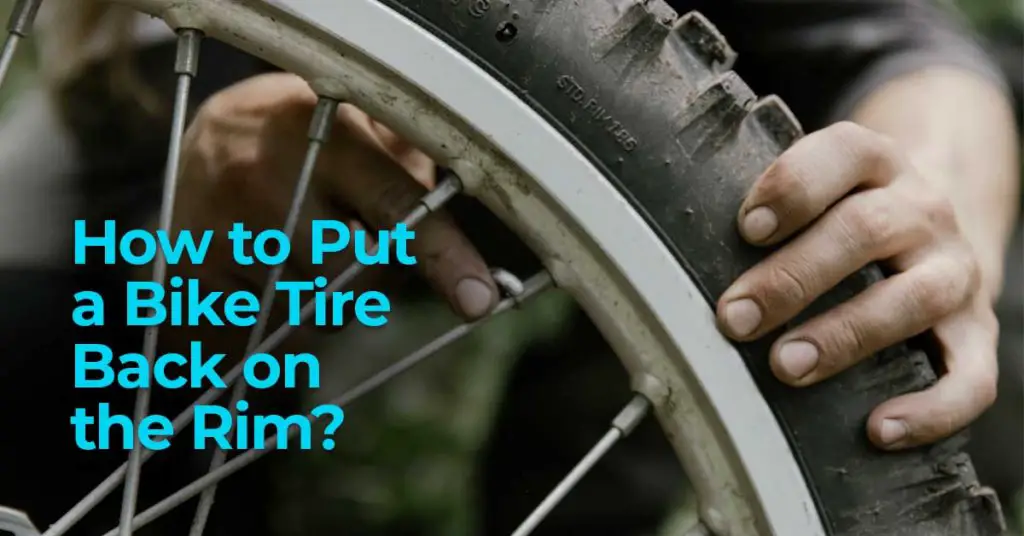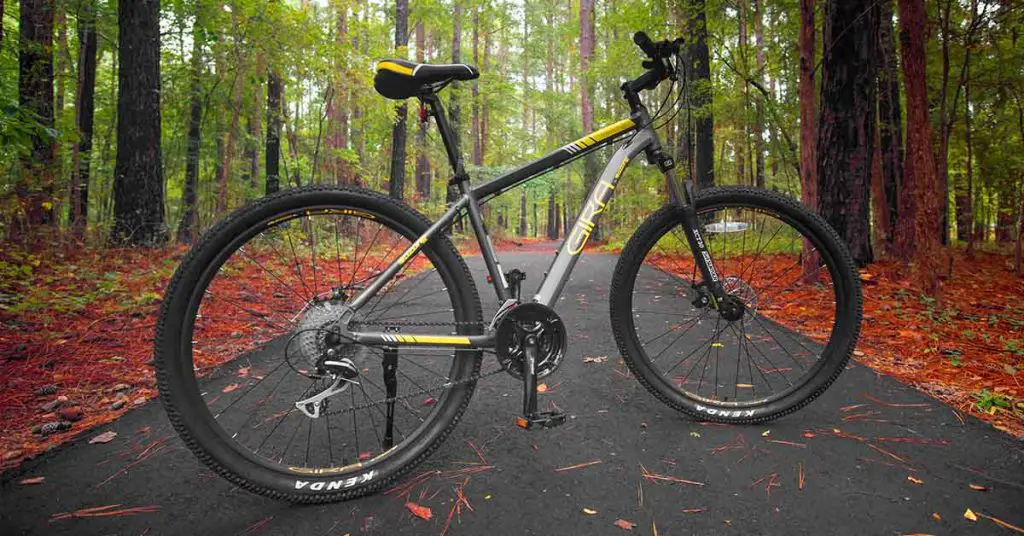Table of Contents
If you’re like most cyclists, you almost don’t think much about your bike’s tires. But if your bike tires go flat, you’ll want to know about this phenomenon. Bike tires can go flat from sitting, but it’s not a common occurrence. According to the American Society of Mechanical Engineers (ASME), “The tire can withstand the largest pressure loss of 25 psi before failure.” That means that your bike tires can withstand up to a pressure loss of 25 pounds per square inch (psi).
But, there are some things that can cause your bike’s tires to go flat from sitting. For example, if you have a puncture in one of your bike’s tubes, the air inside the tire will be forced out and the tire will be flat. Thus, it’s important to keep your bike clean and inflated to optimum levels any dirt or debris in the air could lead to a flatscreen!
Over time, bike tires can become flat when stored for extended periods of time. This is since rubber is porous on a microscopic level and has countless tiny pores that allow air to escape. Even though rubber appears impenetrable, there are pores large enough for air molecules to pass through.
Another possible reason is when you pump up your bike tire and forgot to tighten the tire valve cap.
Different reasons why bike tires deflate
It’s a common misconception that bike tires can go flat from sitting for too long. While it’s true that a tire can lose pressure over time.
Below are some possible reasons why your tire can be deflating.
Tire puncture
If a tire punctures, the air inside the tire can become trapped. This trapped air can cause the tire to deflate and eventually blow out.
Worn out tube
If the tube of a bicycle tire is worn out, the tube can become weak, and air can leak out of the tire. This loss of air pressure can cause the tire to deflate.
Tire age
Tires and tubes will slowly weaken over time, no matter how well you take care of them. This weakening causes the materials to become less flexible, and a small rip can develop into a large one if not taken care of quickly. Pumping up the tire puts more strain on the little rip, causing it to grow larger each time.
Tire damage
If a tire is damaged, the rubber can start to tear. This type of damage can cause the air inside the tire to become trapped and cause it to deflate.
Weather conditions
In cold weather, water can seep into the rubber of a bike tire and freeze. When the freezing temperature hits, it can break the ice and cause the tire to deflate.
Rim problem
Flaws within the rim can cause the tire bead not to seat well, which then causes a bubble to form within the tube. If this happens, the pressure of driving with a bubble trying to come out between the rim and the bead will eventually penetrate the tube.
Low air pressure in the tire
If your bicycle tires are not inflated to the correct pressure, they can become flat due to the lack of air pressure. When the air pressure in a tire is low, it can cause the tire to lose its ability to hold air and eventually deflate.
Deflated bicycle tires are often difficult and dangerous to ride, especially on hilly terrain. Always check your tire’s air pressure before riding and always inflate your tires to the correct pressure.
How do prevent flat tires?
Bicycles are a popular mode of transportation for people of all ages and fitness levels. However, like any mechanical device, bicycles can experience some issues. One common issue is flat tires.
Flat tires can occur when the tire is not inflated enough or when it becomes punctured. When a tire becomes flat, it cannot provide the necessary support for the bike and may become dangerous to ride. To prevent this from happening, it is important to know how to prevent flat tires from occurring in the first place.
One way to prevent flat tires is to inflate your tires properly before riding. Over-inflating your tires can lead to them becoming brittle and more likely to burst. Under-inflation can also cause your bike to lose power and be less responsive during rides. Always check the pressure in your tire before riding. And adjust as needed based on how you feel the bike handles.
Other factors that can contribute to flats, include wearing down your bike’s suspension or brakes, riding on rough surfaces, or leaving your bike parked on an incline for an extended period of time without inflating its tires. Avoiding these situations will help keep you safe while cycling.
What is the best way to hang a bicycle in a garage?
One common mistake cyclists make is not properly storing their bikes. If you don’t have a proper place to store your bike, the tires can go flat from sitting. To keep your bike safe and your tires from going flat, make sure to hang it in a garage using the following tips:
1. Make sure the bike is level – If the bike is not level, the tire will wear more quickly on one side than the other.
2. Use a sturdy hanger – A sturdy hanger will hold up to the weight of the bike and tire.
3. Keep cords and cables out of reach – Cords and cables can get caught on the hanger and cause damage or even a fire if they are pulled too hard.

Why do bike tires go flat when not in use?
Use of the wheel heats up the air inside and stops it from deflating, preserving the reputation quo…. whilst now not in use the extra stress resulting from the warmth is absent and consequently, the tire slowly deflates as regular.
Can a bike tire go flat without a hole?
To reply to the question immediately, sure, in case your tube is dropping air that quickly, it wishes to be repaired. it isn’t a matter of truly being too antique. there is likely a totally small hole or a leak within the valve.
Can a tire go flat from the cold?
Bloodless or cold climate temperatures pose a threat to your rubber tires. decreased temperatures may also reason the rubber to contract, which creates areas between the rubber and rim. This will permit air to leak slowly. The bloodless also can cause rubber tires to grow to be brittle and tougher.
Conclusion:
By following these simple tips, you can help prevent your bike tires from going flat from sitting.
We hope this blog post was informative and helped clear up any confusion that you may have had on the subject!



